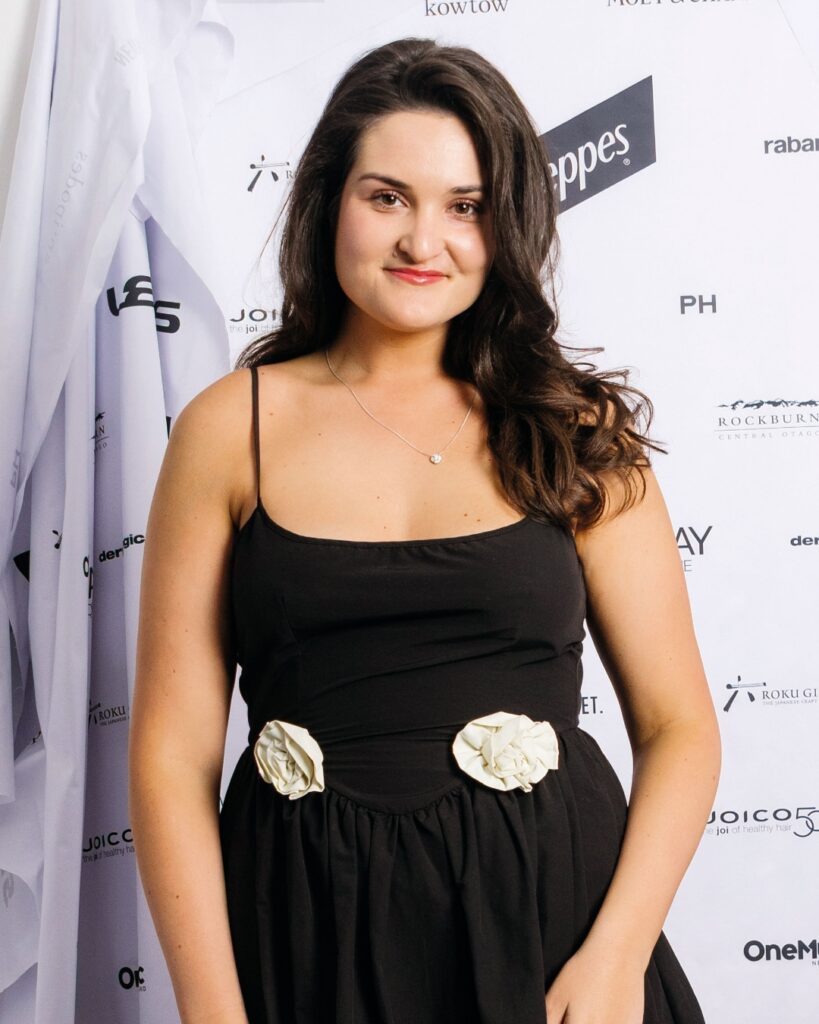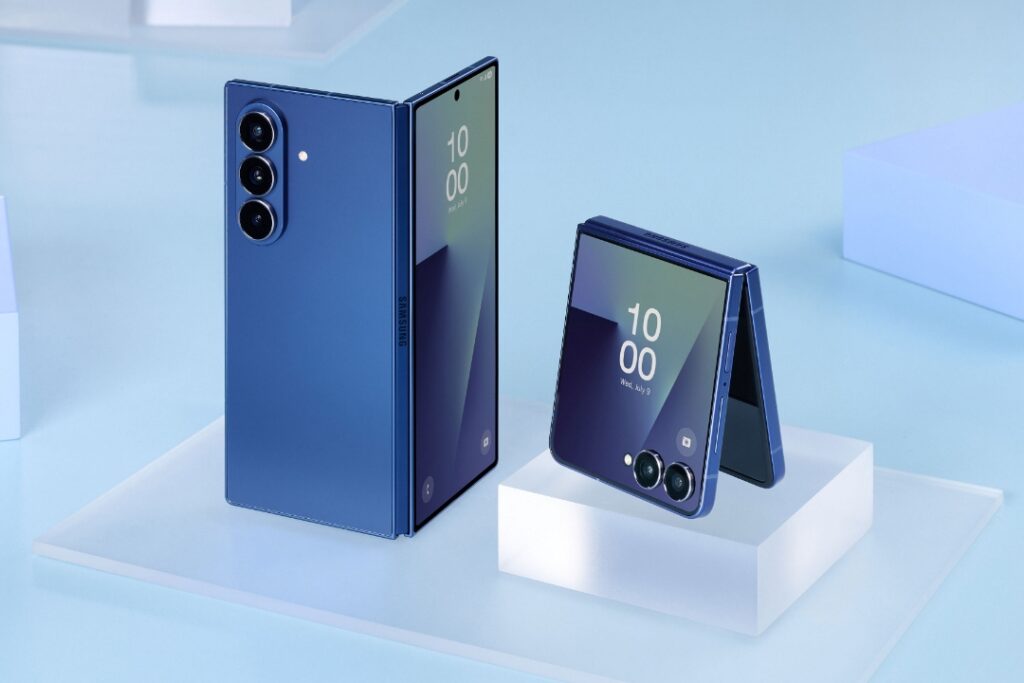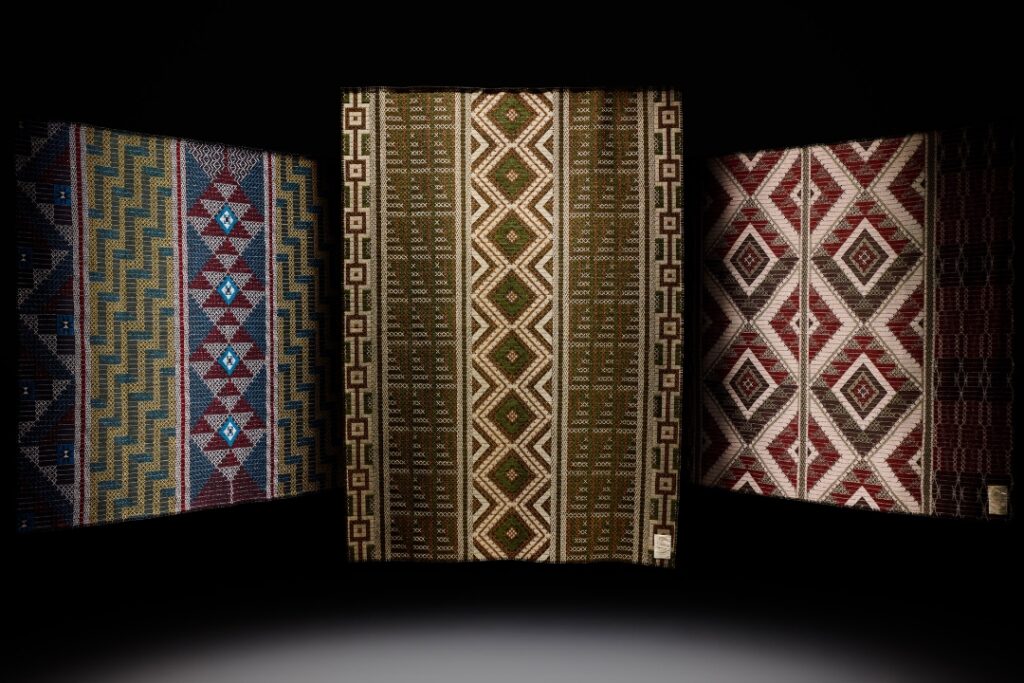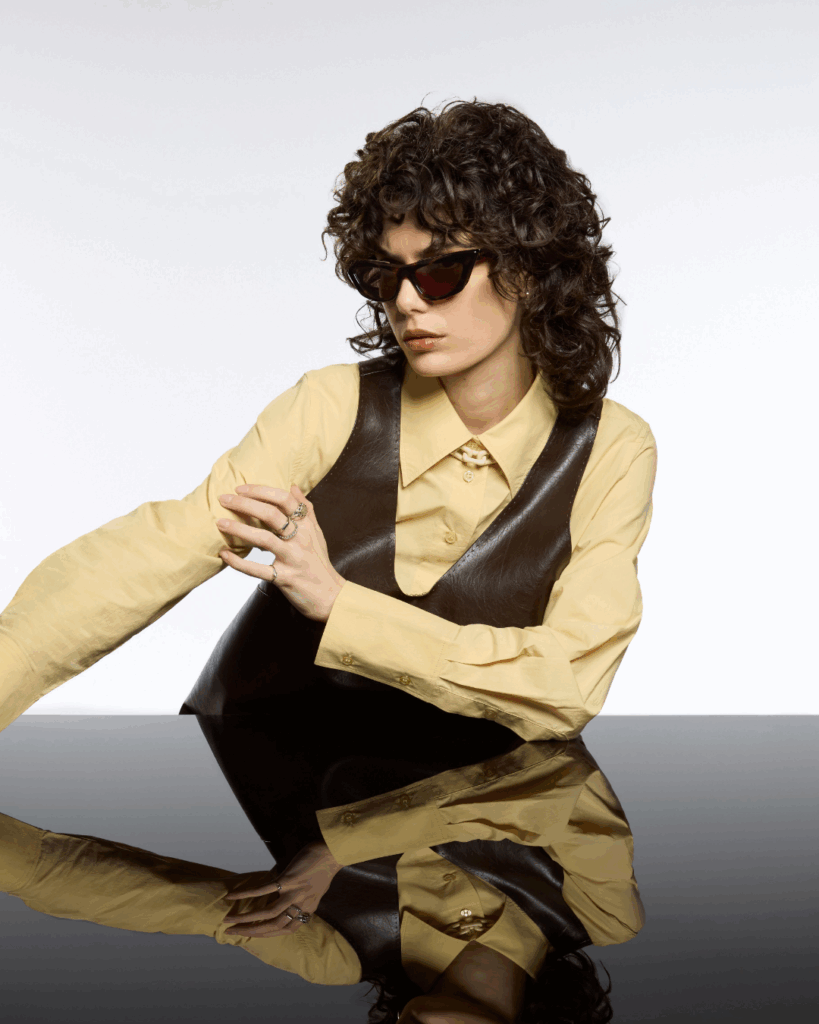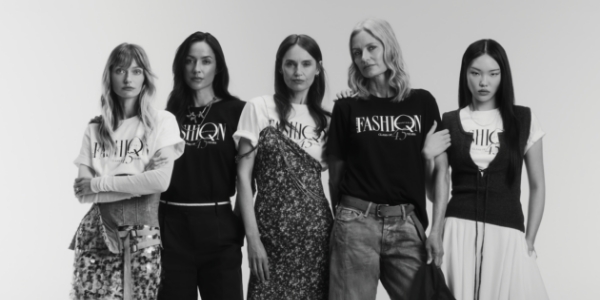You’ve heard of the amazing young women who make up the Miss FQ Collective.
Smart, accomplished, ambitious and all with something meaningful to say, we selected each member for the unique perspective they could bring to the Collective plus the individual skills and attributes that make them the cool chicks they are.
You know who else has always celebrated individuality? Converse. And this week they’ve just launched their awesome ‘Love The Progress’ collection, part of their All The Stories Are True campaign, which brings together female trailblazers from all over the world who, against the odds in many cases, are carving their own path and inspiring other young women to live by their own terms. Actor and activist Millie Bobby Brown, Australian-Russian Stephanie Kurlow, the first hjiabi ballerina, and Qin Yungqua, a Singaporean native committed to empowering women through self-defence, are just some of the fearless females redefining what it means to be a girl today.
So it was a no-brainer for Converse to tap the Miss FQ Collective to be part of this global initiative; as you all know, the Miss FQ Collective epitomises exactly what it means what it means to be a badass girl in the 21st century.
We called upon two members—Aasha-Samara Nimo (21) and Bhavana Bhim (23)—to tell us what’s up when it comes to their female icons, why women need to support other women more than ever in 2019 and what their personal journey to women’s empowerment has been like so far…
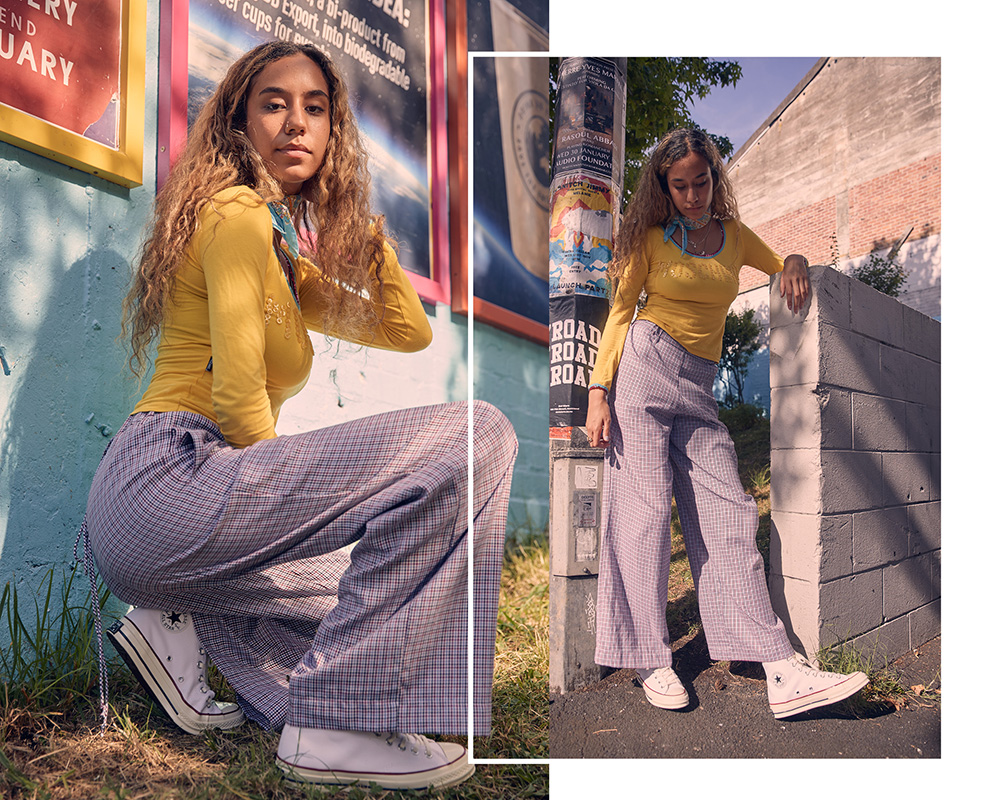
First up is 21-year-old Aasha-Samara Nimo, a journalism graduate from Mangere in South Auckland who constantly blows our minds with her cool creativity, calm demeanour, bucket-loads of talent and intelligent and thoughtful approach to each and every project.
Miss FQ: How would you tell your story in a nutshell?
Aasha-Samara: I’m of Pacific Island descent, was home-schooled and then got a journalism degree; but now I’m freelancing in film photography, writing and styling. I have so many ambitions but all in God’s timing for reals!
What does it mean to be a girl in the 21st century?
It’s definitely easier to be more outspoken with access to the internet; which means it’s getting harder for people who have the luxury to use it, to find excuses not to educate themselves.
What does the word ‘GIRL’ mean to you?
How someone embodies that description should only come from organically growing into themselves, rather than basing it off what someone else suggests. Being a girl is the most complex thing in the world when one anticipates the kind of treatment and behaviours we face.
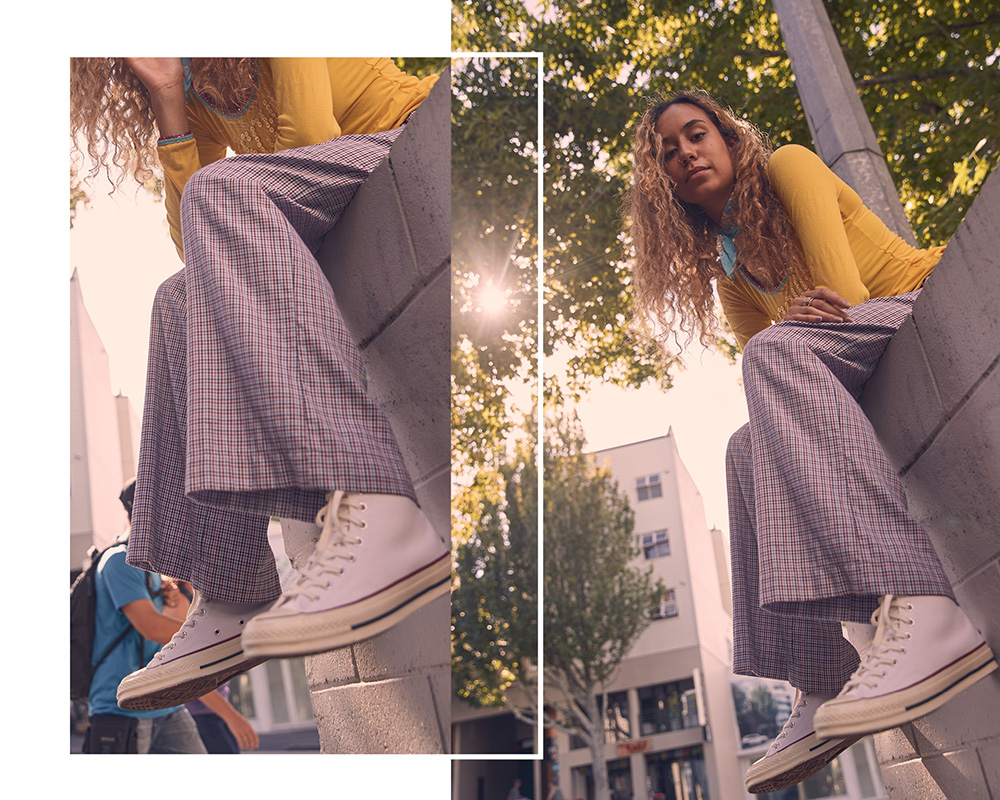
Tell us about your personal path to empowerment.
It took years and I’m still in the aftermath of body dysmorphia and anxiety—but after actively prioritising and chilling with Jesus more, I’ve come to realise my purpose and what kind of voice I have and will have. The more self reflection and awareness you practice, the more one’ll transform into the person they envision for themselves.
Why do you think it’s more important now than ever for women to help one another?
Historically, women and girls have always been vulnerable to systematic sexism and beliefs so I think it’s less about being more important than ever and more about utilising resources, educating one another and accepting every small victory.
Who are your feminist icons?
I prefer to be inspired instead of aspiring to be like someone else. The women in the world who face severe human rights challenges yet are barely acknowledged? My inspirations for reals. I think often about the mothers who protect their daughters against FGM (Female Genital Mutilation) and women who spend their entire period cycles in menstrual huts for example. Nadia Murad, an Iraqi Yazidi activist who was kidnapped by the Islamic State and won a Nobel Prize, has made a huge impression on me no cap!
Define your own sense of style.
The more patterns, colours, silhouettes and decades clashing, the better. I basically imagine what kind of character I want to portray that day and just do it. Op shopping is the only way to go; I’m not rich and don’t pretend to be either, so $3 racks where it’s at. Style has always been so freeing. Literally anything can look dope if you’re confident about it.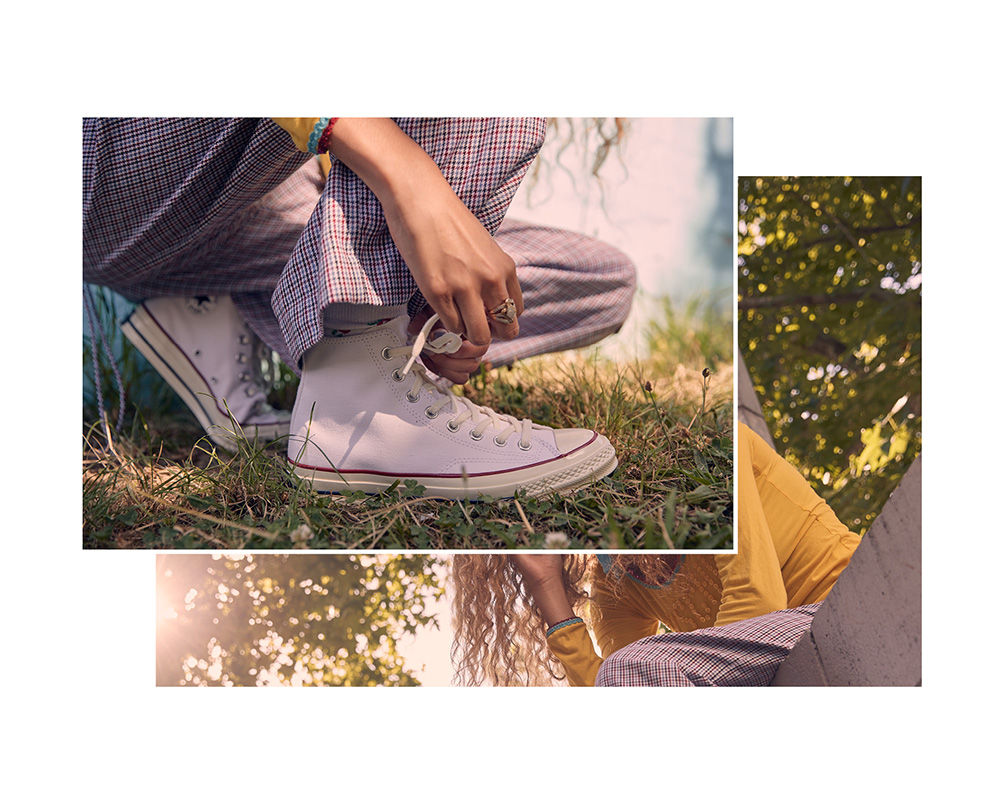
How has Converse enabled you to form and express your own sense of style?
I developed an eye for Chuck Taylors at an early age because my parents love sneakers, too. I remember choosing my very first grey/blue pair from an outlet store for my 12th birthday and since then, they’ve made me feel a chill sense of expression.
Describe the importance of fashion, photography and art in your life.
I’m still learning and growing, but what will never change is my intentions behind what I do. My content will always be purposely diverse. It’s my way of rejecting the biased cycle of beauty and fashion standards for women.
How has social media allowed you to express your opinions and thoughts on women’s rights?
It’s enabled me to speak freely and also identifies what areas feminists online focus on, so I can provide something different and personal. Some look at local iwi and land education; for others, it’s refugee and immigration rights. I hope my focus on culture and women’s mental health is adding to the conversation in some way.
Through your love of photography, how have you been able to express or challenge certain ideas around female empowerment?
Nothing motivates me more than seeing the same type of industry imagery repeated continuously — it’s like no other muses or people exist, when we absolutely do. Explain to me why our indigenous Maori make up roughly 15% of their native land and Pacific Islanders present over 7% of New Zealand’s population, but I can still count on one hand the number of high fashion campaigns that have represented the authentic look and style of these women? Bruh.
Do you have any final advice to share with other women walking the path of empowerment?
Realise ‘Cancel Culture’ or the act of ‘cancelling’ someone for their ignorance or mistakes is secondary to our priority to educate. Don’t jump to criticise someone for sharing views different to your own, yet simultaneously wonder why more people don’t have an open dialogue. Lastly, it’s mad important to know your background and understand who you represent.
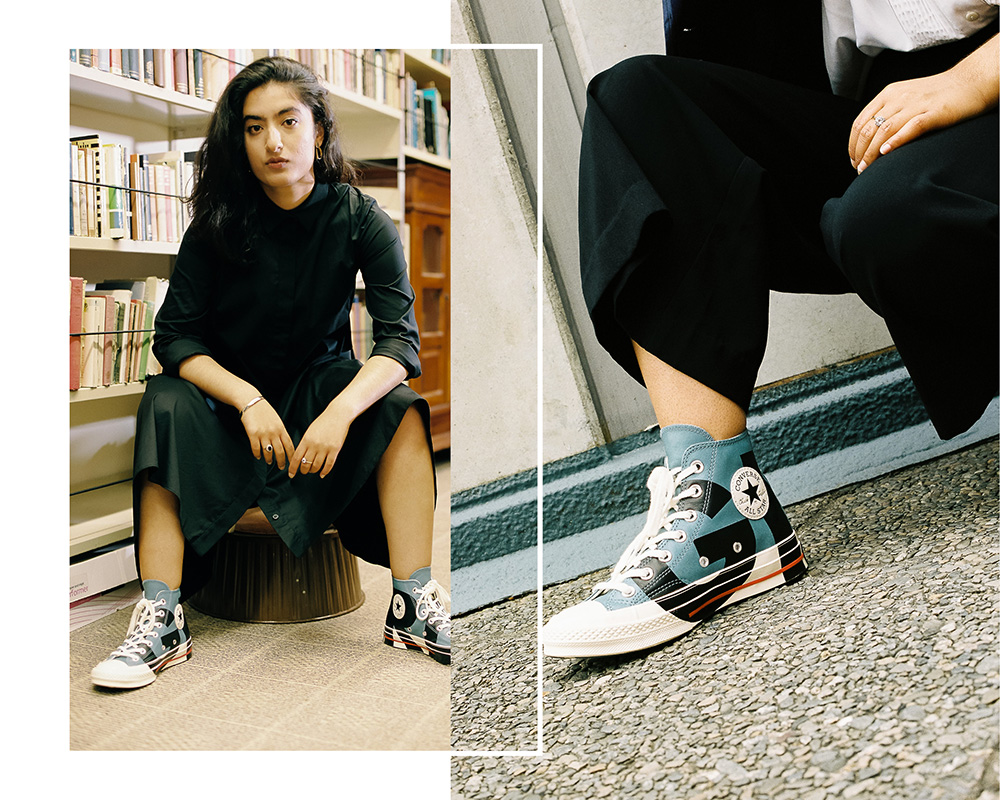
Next, we spoke to Lower Hutt local Bhavana Bhim, a 23-year-old scholar who recently wrote her thesis on the exchange of women as war prizes in the Iliad (yeah WHOA super cool, we agree) and is an aspiring writer and diversity campaigner who we reckon has big things ahead of her.
Miss FQ: Tell us a bit about yourself.
Bhavana: My heritage is really important to me. I’m an Indian-New Zealander and that’s really shaped me into who I am today. I’m incredibly passionate about education, arts and women’s rights. I read and photograph a lot. Throughout high school I was involved in dance shows, loved English and art class, was in the cultural committee and became a member of the student council.
Tertiary education has always been important to me and I chose to pursue my passions there, studying a BA in Art History, Classics and English Literature. I loved it. I wanted to get the most out of uni and stand out from the crowd so I got involved. I became a student representative for the Humanities faculty, I campaigned for academic vice president and participated in the first anti-sexual violence campaign for Victoria University. I taught for a little while and got to inspire others to get excited about studying. In my first year as a Classics post-grad, I researched women in ancient history because that’s not typically explored a lot…
I’m currently finished with study (for the time being) but I work at the Dowse Art Museum and as a contributing writer for Miss FQ and Lucire, a fashion publication in Wellington. Fashion writing is fun but a lot of hard work; I try to bring diverse topics to the forefront to make people think differently. Ultimately, I aspire to work in an industry where I can be creative, use my voice and collaborate with passionate people.
What does it mean to be a girl in the 21st century?
Being a girl in this century means the world is your oyster. Girls can do whatever they want and they should be supported to achieve their goals and dreams. So many of us take education or career opportunities for granted, yet millions of girls across the world are forbidden or discouraged to learn or work and this breaks my heart. We’ve come a long way, but we can and should do more to support girls in the 21st century.
Define what the word ‘GIRL’ really means.
It means embracing your talents and being fearless in who you are and what you do.
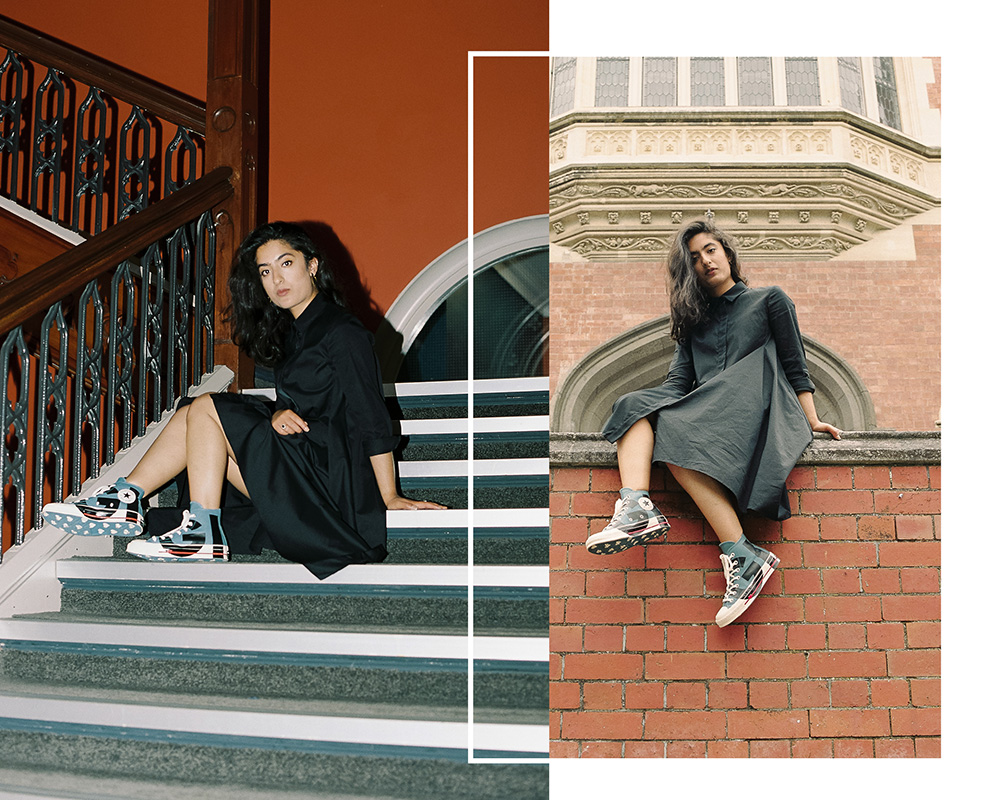
Could you tell us more about the work you’re doing around your thesis studies?
My honours thesis was about women exchanged as prizes of war in the Iliad (an ancient war poem that’s 24 books long). It’s finished now and I’m incredibly proud of it. I applied Lévi-Strauss’ anthropological theory of exchange in human society to enlighten the epic poem. As an advocate for women reading the Iliad, I noticed how women were mentioned but never elaborated on. In Classics, the Iliad is a pillar of male-centred mythology. Most people in academia want to know about masculinity and what it means to be a hero, but what about women? So I researched something which brought women’s stories to the forefront—sexual violence, oppression and trafficking during war. It was a heavy topic, but worth it.
What’s been the biggest epiphany you’ve had whilst putting together your thesis?
By applying anthropology to the world of classical myth, it was interesting to observe relations between men and women. It made me think critically about trafficking not just in ancient society, but also today. The two are closely intertwined, which is scary but eye-opening. It’s cool to bring a feminist perspective to historical traditions.
Tell us about your personal path to empowerment.
I’m lucky that I have had support and freedom to think. My family, friends, teachers and colleagues empower me to not be scared. I wasn’t always confident and outspoken but growing up in a community with people from different backgrounds made me realise that social diversity is important and powerful. Throughout university I became empowered to embrace who I was and use my courage to speak out on matters important to me.
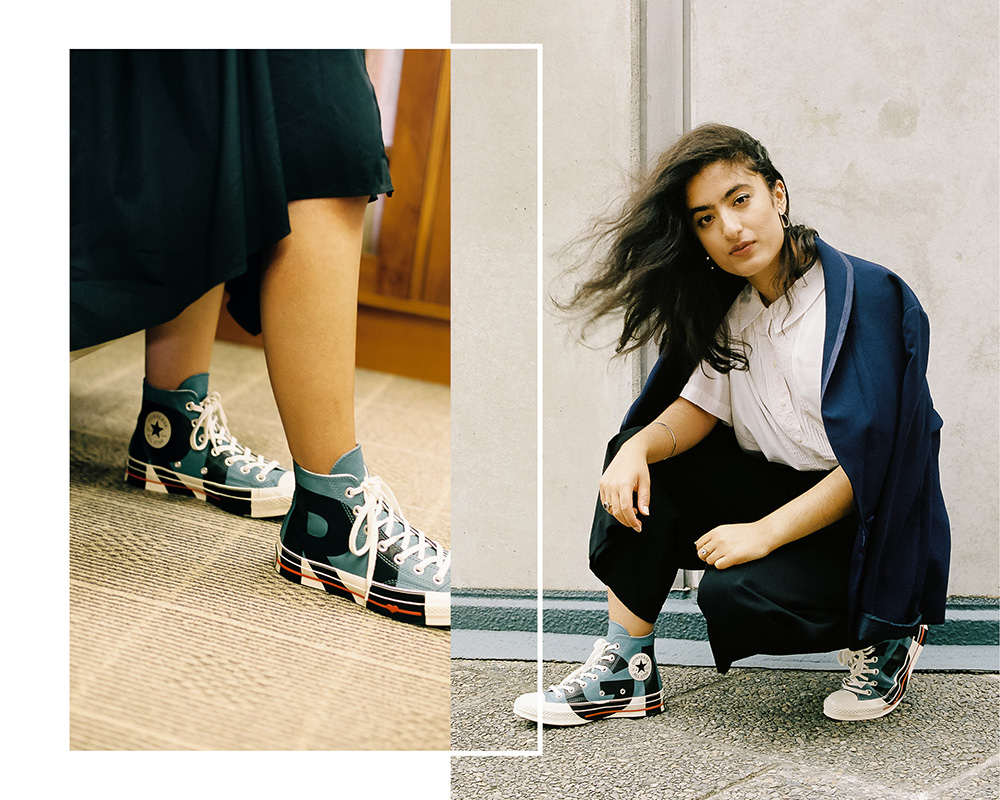
Women supporting women – why do we need this more than ever in 2019?
We need a solid troop to fight the patriarchy, right? Women need to educate each other and stick together. Social media is a powerful medium to connect with people and it is important to use it positively. It’s easy to get envious and spread hate—that bothers me. Curate your feed, be kind to and supportive of others and don’t be mean.
What is your style philosophy?
My style is preppy with an edge. I love a tailored blazer, turtleneck and a collared shirt but I’ll pair it with jeans, sneakers, a crazy print or some jewellery. I like to dress smart but comfortable.
You say yourself you’re a sneakers girl: What part has Converse played in your style story?
I’ve grown up with the brand. I wore my Converse throughout high school and uni—I suppose it became part of my uniform, something I wore everyday to feel stylish and cool, but ultimately at ease to do as I please.
Who are your mentors or the women you look up to?
The women in my family: My mum and my sisters are my mentors. I’ve also worked with incredible women at uni and work. People in different industries who constantly encourage me to be the best. I’m obsessed with Jean Batten, Frida Kahlo, and Mala Yousafzai, an advocate for refugees, education and women’s rights.
Do you have any advice to share with other women walking the path of empowerment?
Know who you are and the type of woman you want to be. Educate yourself, ask questions and share your knowledge. People will criticise you, but don’t take things personally. Speak up and be heard.
Photos: Rob Corica

This article is brought to you in partnership with Converse and their new ‘Love The Progress’ collection – designed by an all-female team and inspired by women past and present who are moving the needle for the next generation. The edgy-yet-feminine collection uses cute details, such as the heart motifs on the side of and under the sole, plus meaningful text, fun prints and cool colour-ways. Available online at converse.com.au and in-store at Converse Sylvia Park, Converse Manukau, Converse St Lukes & selected retailers across the country.


